13 of the strangest stories from Greek mythology
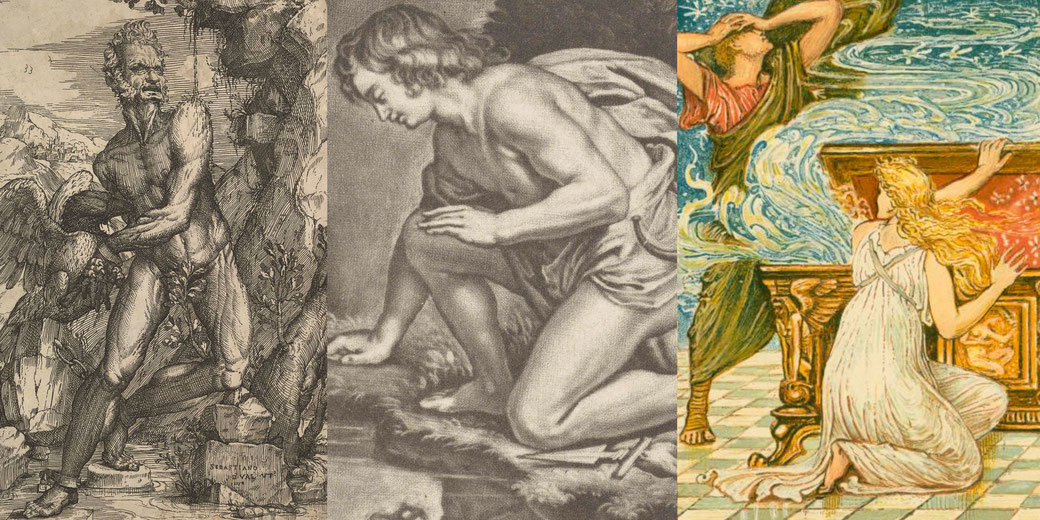
A woman turns into a tree moments before her pursuer can touch her, a traveller comes across a land where a king feeds strangers to a magical beast, and a mother unknowingly marries her son and becomes queen.
Greek mythology includes such seriously strang stories. But, what do these unusual tales tell us about how the Greeks made sense of their world?
1. When a child was born from a father's forehead
The birth of Athena, the Greek goddess of wisdom, courage, and warfare, is just one of these strange tales.
Unlike most gods and goddesses, Athena’s birth did not happen in the usual way.
Instead, she appeared fully grown, wearing armour, from the forehead of her father, Zeus, the king of the gods.
The story starts with Zeus and his first wife, Metis, the Titan goddess of wisdom.
When Metis became pregnant, a prediction said that the child she carried would grow up to replace Zeus, just as he had replaced his own father, Cronus.
Worried about this prediction, Zeus swallowed Metis whole, hoping to stop it.
However, this did not stop Athena’s birth. It only delayed it.
Eventually, he began to have unbearable headaches, and the pain was so bad that he called for Hephaestus, the god of blacksmiths and crafts, to split open his head with an axe.
When Hephaestus did so, Athena came out of his forehead as a fully grown adult.
2. Being punished eternally for being generous
Prometheus was different from other Titans. He was known for both his wisdom and his deep care for humans.
Because he cared about humans, he did something bold: he stole fire from the gods and gave it to people.
In this story, fire was not just a useful tool: it represented knowledge, progress, and civilisation.
By giving fire to humans, he not only gave them a way to survive but also helped them move towards learning and development.
Despite his good intentions, his act of rebellion did not go unpunished. An angry Zeus, worried about the possible threat posed by an enlightened humanity, planned a harsh and never-ending punishment.
Prometheus was chained to a rock in the remote Caucasus Mountains, and every day an eagle, the animal symbol of Zeus, flew down and ate his liver.
Each night, his liver grew back, only to be eaten again the next day. This cycle of suffering was his fate forever.
Many years later, Hercules freed him from his suffering by killing the eagle and breaking the chains.
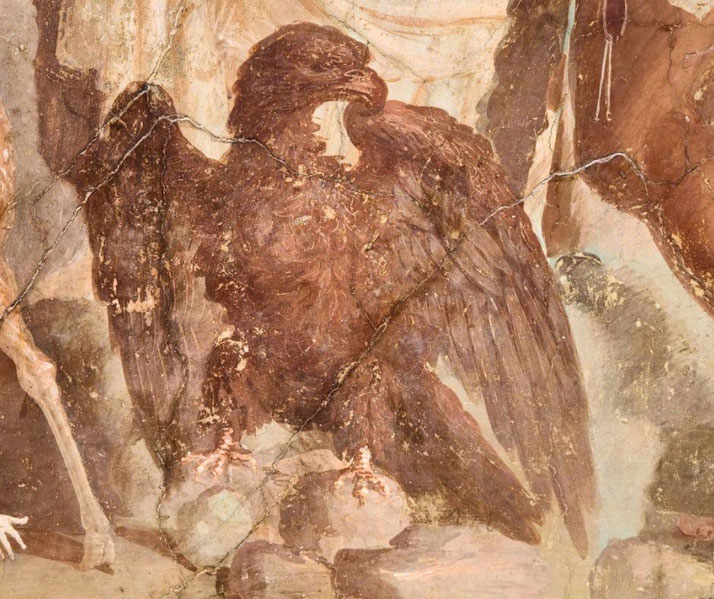
3. How a woman became a spider
Arachne was a mortal woman famous for her outstanding weaving talent. She was not just good; she was the best, her skill was unmatched by anyone else.
Her tapestries were so beautiful and her method so perfect that the nymphs themselves would leave their groves and streams to watch her work.
Despite her talent, her great skill came with great pride. She was so sure of her ability that she dared to challenge Athena, the goddess of wisdom and crafts, to a weaving contest.
Disguised as an old woman, Athena told her not to be so arrogant and to respect the gods.
Arachne ignored the warning and said she could make a tapestry more beautiful than anything Athena could make.
That is when the goddess showed her true form, and the contest began. Both weavers made stunning tapestries, but while Athena’s showed the glory of the gods, Arachne's showed their wrongdoings, including Zeus’s many affairs.
Athena was furious, not only because she challenged her, but also because the tapestry revealed truths about the gods.
In anger, Athena destroyed the tapestry and loom. She hung Arachne to hide her shame and sorrow.
However, Athena felt instant pity and regret, so decided to save her from death.
Instead, the goddess changed Arachne into a spider, who was now doomed to weave webs forever.
4. When loving the most beautiful person goes very wrong
Narcissus was a young man of such beauty that both men and women were completely taken by him.
However, he did not care about the love of others. Narcissus rejected everyone who loved him because he didn't think that they were beautiful enough to deserve him.
One day, when he was hunting, Narcissus stopped to drink from a clear pool of water.
As he leaned over, he saw his own reflection and fell deeply in love with it.
Because he did not realise it was only an image, he tried to hold it, kiss it, and talk to it, but could not.
After that, he stopped eating and drinking and slowly wasted away as he stared at the image he could not have.
Eventually, he died by the pool, taken by his self-obsession. Where he died, a flower grew, which was named Narcissus flower to honour his memory.
Some versions of the story say that the gods turned him into the flower as a reminder of what happened.
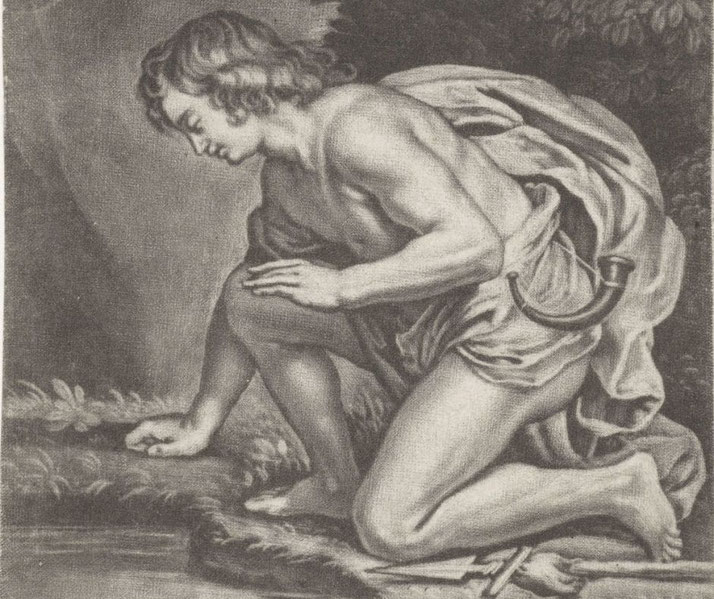
5. The most horrifying 'to-do list' ever given
The Labours of Hercules, also known as the Twelve Labours, are among the most well-known stories in Greek mythology.
They tell the tale of Hercules, the son of Zeus and the mortal woman Alcmene, whom Hera, Zeus’s wife, drove so mad that he killed his own wife and children.
As punishment for his actions, Hercules was given a series of tasks by King Eurystheus.
Hera guided Eurystheus to create tasks that would either kill him or be impossible to complete.
The tasks included killing dangerous animals like the Nemean Lion and the nine-headed Hydra, and capturing mythical creatures like the Golden Hind of Artemis and the Erymanthian Boar.
Hercules was also given the job of cleaning the Augean stables in one day, stealing the belt of Hippolyta, the Queen of the Amazons, and even capturing Cerberus, the three-headed dog that guards the entrance to the Underworld.
Each of these tasks was so dangerous that they needed great physical strength, clever thinking and courage.
He even received help from some gods who gave him magical tools. As such, Hercules had to find special ways to complete his tasks; for example, he used the river to clean the Augean stables or he offered a golden apple to distract the dragon that guarded the Hesperides' garden.
As a result of his efforts, Hercules was able to beat the challenges and finish his tasks, earning a chance to make up for his actions.
6. What happens when you get what you wish for
King Midas was a wealthy ruler who loved gold. One day, he showed kindness to Silenus, a satyr who was a friend of Dionysus, the god of wine and celebration.
Because of Midas’s kindness, Dionysus offered to grant him a single wish. He felt overwhelmed by his desire for wealth and asked that everything he touched would turn to gold.
Although Dionysus did not want to, he agreed to grant Midas’s wish, and at first, he was thrilled.
He touched everything around him, and he watched as it turned to gold. Soon after, he recognized the problem with his golden touch.
When he tried to eat, his food turned to gold, and similarly, when he tried to drink, his water also turned to gold.
Next, even his dear daughter became a gold statue when he hugged her.
Feeling unhappy and upset, Midas begged Dionysus to take back his gift. At that moment, Dionysus felt sorry for him and agreed to remove the curse.
He told Midas to wash in the river Pactolus to lose his golden touch. He did as he was told, and he was relieved to find that his touch was normal again.
Later, this river became famous for its golden sands, which people thought to be a gift from the gods.
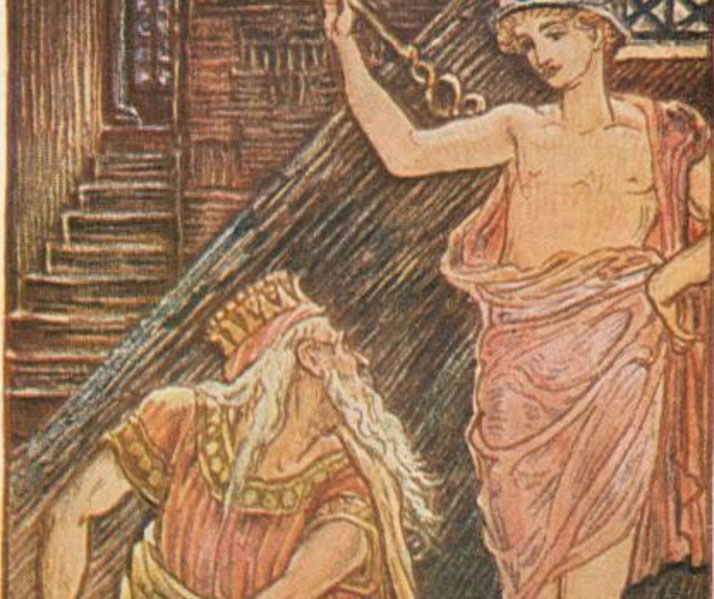
7. Does father really know best?
Icarus was the son of Daedalus, a skilled craftsman and inventor. At one point, both father and son were locked up in a maze on the island of Crete by King Minos.
The maze was a complicated network of passages that Daedalus had made to keep the Minotaur, a monster with a man’s body and a bull’s head, away from regular humans.
Daedalus was trapped and eager to escape, so he came up with a plan: he made two pairs of wings out of feathers and wax, one for himself and one for Icarus.
Before they flew, Daedalus warned Icarus not to fly too close to the sea, because the wet wings would fail, and not too close to the sun, because the heat would melt the wax.
Despite his father’s advice, Icarus felt excited by flying and flew higher and higher toward the sun.
Tragically, his choice proved fatal. The sun melted the wax in his wings, and Icarus fell into the sea and drowned.
The story of Icarus’s flight is meant to be a moral lesson about human ambition and the tragic result of ignoring good advice.
8. When a mother married her own child
Oedipus was the son of Laius, the king of Thebes, and his wife, Jocasta. Before he was born, an oracle said that Oedipus would kill his father and marry his mother.
Horrified by this warning, Laius and Jocasta decided to kill their newborn son. They told a servant to leave the baby on a mountain to die.
However, the servant felt pity for the baby and gave him to a shepherd from nearby Corinth.
Then, the shepherd gave the baby to the childless king and queen of Corinth, who raised him as their own.
As a result, he did not know his true parents. He grew up in Corinth. As a young man, he visited an oracle and heard the same warning his real parents had heard.
He believed that his adoptive parents were his birth parents, and he left Corinth to avoid making the warning come true.
During his journey, he met Laius, his real father, and killed him in a fight without knowing the man’s identity, which fulfilled the first part of the warning.
Next, he came to Thebes, which was being troubled by the Sphinx, a creature with a lion’s body and a woman’s head.
The Sphinx offered a riddle and said she would leave Thebes if he could answer it.
He answered the riddle correctly. The Sphinx killed herself, and people praised him as a hero.
As a reward, he was made king of Thebes and given the hand of the widowed queen, Jocasta, his real mother, in marriage. In this way, the oracle’s warning came true.
9. Whatever you do, don't look inside this jar
Pandora was made by the gods as part of a punishment for humans because Prometheus, a Titan, had stolen fire from the gods and given it to humans.
Zeus, the king of the gods, told Hephaestus, the god of making things, to form a woman out of clay.
Each god gave this woman a gift and named her Pandora, which means ‘all gifts’. Athena taught her crafts, Aphrodite gave her beauty, Hermes gave her speech, and so on.
Zeus then sent Pandora to Earth as a present for Epimetheus, Prometheus’s brother.
Despite a warning from Prometheus not to accept any gifts from the gods, he was impressed by her beauty and agreed to marry her.
She brought a jar (often called a box) that Zeus had given her, telling her never to open it.
She felt curious and unable to resist, so she finally opened the jar. When she lifted the lid, all the bad things in the world (disease, sadness, poverty, war) flew out and spread across the Earth.
Instantly, she felt frightened and quickly tried to close the jar, but it was too late.
Only Hope stayed inside the jar, ready to comfort people in their troubles.
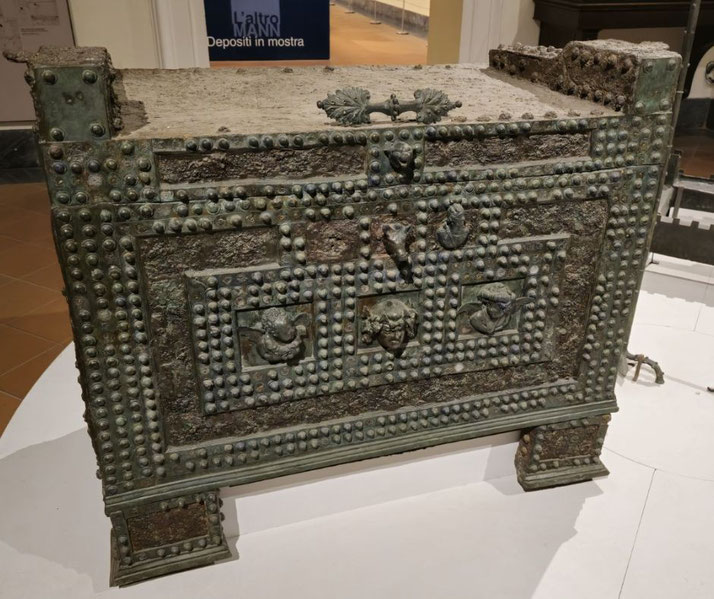
10. When a man made a statue ... then fell in love with it
Pygmalion was a skilled sculptor from the island of Cyprus who, disappointed by the faults he saw in the women around him, decided to create a statue of the perfect woman.
He carved her from ivory with such care that she looked almost alive. He named her Galatea, and she was so lovely and lifelike that he fell in love with her.
He dressed her in nice clothes, gave her jewels, and acted as if she were a living woman.
Despite his deep love for her, he felt troubled because he knew that she was only a statue and could not love him back.
At the festival of Aphrodite, the goddess of love, he made a heartfelt request.
He asked Aphrodite for a wife like his statue, and the goddess, moved by his sincere love and wish, decided to fulfil his request.
When he returned home and kissed the statue, he was amazed that her lips felt warm.
Then the ivory of her skin turned to flesh, her eyes opened, and she became a living woman.
She returned his love, and they soon married.
11. Music gives you power over the gods
Orpheus was a famous musician whose music could charm wild animals, make trees seem to dance, and even change the path of rivers.
However, he was deeply in love with a beautiful nymph named Eurydice. They were happily married, but their happiness did not last long.
Eurydice was chased by a satyr on their wedding day. As she fled, she stepped on a poisonous snake and died.
Heartbroken by her death, Orpheus played such sad songs that all the gods and nymphs cried.
In response to his grief, the gods told him to go to the Underworld and ask Hades, the god of the dead, to bring Eurydice back.
So Orpheus held his lyre as he went into the Underworld, and his music moved Hades and his wife, Persephone.
As a result, Hades agreed to let Eurydice go on one condition: Orpheus must walk ahead of her without looking back until they reached the upper world.
Orpheus agreed and set off with Eurydice following him. However, in his worry, he looked back at her just as they were about to reach the exit.
She was then pulled back into the Underworld forever.
12. There's something (much) worse than death
Sisyphus was the king of Corinth, who was so clever and deceitful that he managed to cheat death twice.
He tricked Thanatos, the god of death, and even captured him, and as a consequence, for a short while, mortals could not die.
The gods were angry at this act, and when Sisyphus died at last, they gave him a special punishment.
In the Underworld, Sisyphus was forced to push a very large boulder up a steep hill.
Just before he reached the top, the boulder became too heavy and rolled back down.
Sisyphus then had to start his task all over again. This cycle was his fate for ever, a pointless task with no hope of ending or relief.
13. What not to do when invited to dinner with the gods
Tantalus was a king whom the gods liked and often invited to eat with them on Mount Olympus.
However, Tantalus misused this opportunity in several ways. He stole ambrosia and nectar, the food and drink that gave the gods eternal life, to share with his mortal friends.
He also did a terrible thing by killing his own son, Pelops, and serving him as a meal to the gods to test if they knew everything.
The gods were shocked by Tantalus's actions. As punishment, they brought Pelops back to life and sent him to Tartarus, the deepest part of the Underworld kept for the most evil.
There, Tantalus had to stand in a pool of water beneath a fruit tree with low branches.
Whenever he reached for the fruit, the branches moved it out of his reach.
Whenever he bent down to get a drink, the water moved away before he could reach it.
Ultimately, he was left with an eternal hunger and thirst, always close to food and drink but unable to have any.
What do you need help with?
Download ready-to-use digital learning resources
Copyright © History Skills 2014-2025.
Contact via email
With the exception of links to external sites, some historical sources and extracts from specific publications, all content on this website is copyrighted by History Skills. This content may not be copied, republished or redistributed without written permission from the website creator. Please use the Contact page to obtain relevant permission.





